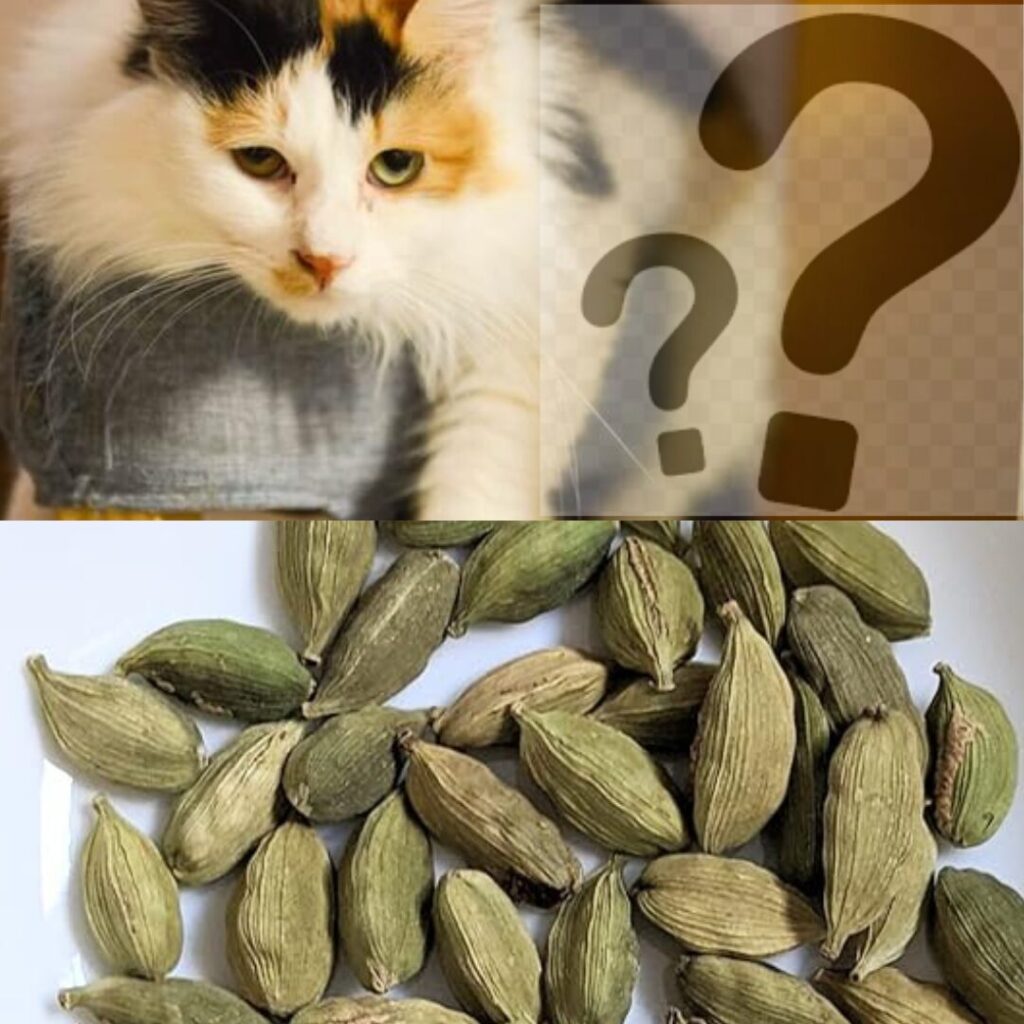
Cats are curious creatures, and their inquisitive nature often leads them to explore new scents and tastes, including those in your spice cabinet. Cardamom, known for its aromatic and slightly sweet flavor, is a staple in many kitchens. But can your feline friend safely consume it? Let’s dive deep into this topic and explore everything you need to know about cats and cardamom.
Understanding Cardamom
Cardamom is a spice derived from the seeds of plants in the Zingiberaceae family, commonly referred to as the ginger family. It comes in two main varieties:
- Green Cardamom (Elettaria cardamomum): Used in sweet and savory dishes.
- Black Cardamom (Amomum subulatum): Smokier and often used in savory dishes.
Cardamom contains essential oils, vitamins, and minerals that make it a popular choice for its human health benefits. But what about for cats?
Can Cats Safely Eat Cardamom?
The short answer is yes but with precautions. In small amounts, cardamom is not toxic to cats. However, it doesn’t provide significant nutritional benefits to them either. Cats are obligate carnivores, meaning their diet should primarily consist of meat-based proteins.
Why Small Amounts Are Key
While cardamom is non-toxic, excessive consumption may cause:
- Digestive Upset: Cardamom’s strong oils can irritate a cat’s sensitive stomach, leading to diarrhea or vomiting.
- Allergic Reactions: Rarely, a cat may show sensitivity to spices, resulting in mild allergic reactions.
Benefits of Cardamom for Cats (in Small Quantities)
When given in moderation, cardamom may offer minor health benefits to cats:
- Digestive Aid: It can help with mild indigestion or gas.
- Antioxidant Properties: Cardamom contains antioxidants that may support overall health.
- Freshens Breath: Its natural oils can combat bad breath in cats.
However, these benefits are minimal compared to the risks of overconsumption.
Risks of Feeding Cardamom to Cats
While small amounts are safe, here are potential risks:
1. Overconsumption
Feeding too much cardamom can lead to:
- Upset stomach
- Loss of appetite
- Lethargy
2. Essential Oils Sensitivity
Cardamom contains essential oils like cineole, which can be overwhelming for cats if consumed in large quantities.
3. Choking Hazard
Whole cardamom pods can pose a choking risk. Always ensure spices are ground and used sparingly.
How to Safely Introduce Cardamom to Your Cat
If you want to let your cat try cardamom, here are some tips to ensure their safety:
- Start Small: Offer a pinch of ground cardamom mixed with their food.
- Observe: Watch for adverse reactions like vomiting, diarrhea, or lethargy.
- Consult Your Vet: Before introducing any new spice, check with your veterinarian.
- Avoid Cardamom-Infused Foods: Many cardamom-flavored dishes contain other harmful ingredients like sugar, salt, or chocolate, which are toxic to cats.
Common Myths About Cats and Spices
- “Cats Love All Aromatic Foods”
Cats may be curious about new smells, but strong spices can irritate their sensitive noses. - “If It’s Safe for Humans, It’s Safe for Cats”
Many human-safe foods are harmful to cats (e.g., onions, garlic, and chocolate). Always research before sharing. - “Natural Spices Are Always Beneficial”
While natural, spices like cardamom should only be given in moderation due to their concentrated oils.
Safe Alternatives to Cardamom for Cats
If you want to enhance your cat’s diet, consider these safe, cat-friendly herbs:
- Catnip: Stimulates playfulness and relaxation.
- Cat Grass: A natural source of fiber for digestion.
- Parsley: Rich in vitamins and safe in small quantities.
Foods to Avoid Giving Your Cat
While cardamom is safe in small doses, some common kitchen ingredients are not. Avoid feeding your cat:
- Onions and Garlic: Highly toxic to cats.
- Chocolate and Caffeine: Can cause severe health issues.
- Grapes and Raisins: Linked to kidney failure.
- Nutmeg: Toxic and can cause tremors or seizures.
What to Do If Your Cat Eats Too Much Cardamom
If your cat accidentally consumes a large amount of cardamom, monitor them closely for symptoms like:
- Vomiting
- Diarrhea
- Lethargy
- Increased drooling
In case of severe symptoms, contact your veterinarian immediately.
The Final Verdict: Can Cats Eat Cardamom?
Yes, cats can eat cardamom in small amounts, but it’s not necessary for their diet. Always prioritize a species-appropriate, balanced diet for your feline friend and reserve spices like cardamom for special occasions, if at all.
FAQs About Cats and Cardamom
1. Can cardamom help with a cat’s bad breath?
Yes, in very small amounts, cardamom may freshen your cat’s breath.
2. Is cardamom toxic to cats?
No, cardamom is non-toxic in small quantities but should be used sparingly.
3. Can kittens eat cardamom?
It’s best to avoid giving spices to kittens as their digestive systems are more sensitive.
Conclusion
While cardamom can be a delightful addition to human cuisine, it’s not a dietary necessity for cats. Small amounts are safe, but moderation and caution are key. Always consult your vet before introducing any new food or spice to your pet’s diet.
Your feline friend thrives on love, care, and a proper diet—so keep the spices minimal and the cuddles abundant! 🐾
